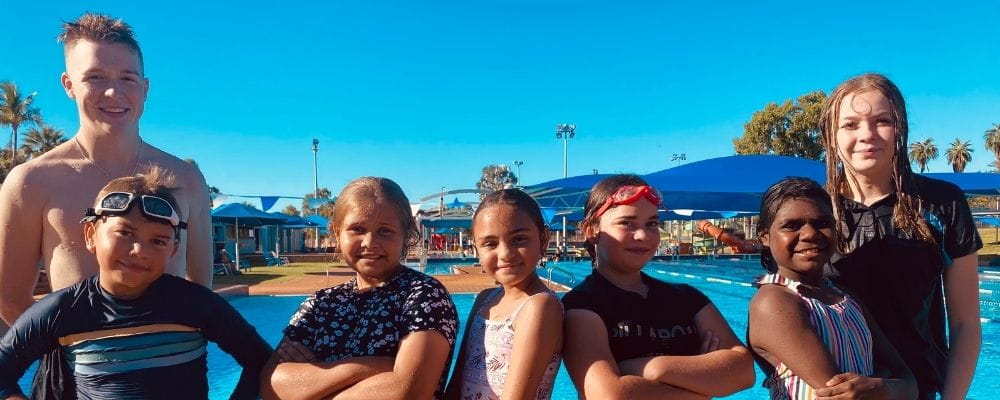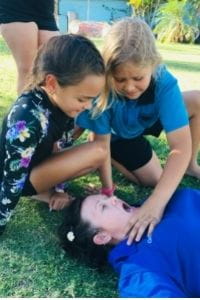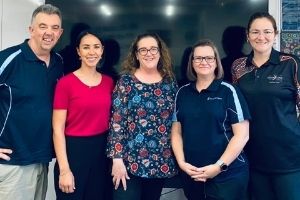
Jesse Thompson (Talent Pool staff), Chase Nannup, Jada Foley, Laylarnie Lee, Mikayla Lockyer, Brianette Angie and Elle Morton (Talent Pool staff)
Junior Lifeguard Club expands to teach more Hedland kids
 Royal Life Saving WA and the Polly Farmer Foundation are pleased to see the expansion of their successful collaboration, which established a Junior Lifeguard Club for 9 to 11-year-olds in Port Hedland. The Community Rescue Club began earlier this year, enabling students in school grades 4-6 from Baler Primary School to learn rescue techniques and build their swim fitness, and it’s now expanded to provide important opportunities for more children.
Royal Life Saving WA and the Polly Farmer Foundation are pleased to see the expansion of their successful collaboration, which established a Junior Lifeguard Club for 9 to 11-year-olds in Port Hedland. The Community Rescue Club began earlier this year, enabling students in school grades 4-6 from Baler Primary School to learn rescue techniques and build their swim fitness, and it’s now expanded to provide important opportunities for more children.
It’s part of the Polly Farmer Foundation’s fun-filled education enrichment program for Indigenous students run at 3 schools across Port Hedland. Ms Kylie Unkovich, Deputy Principal of Baler Primary School, and Coordinator of the Polly Famer Learning Hub, was excited to establish the program for her Indigenous students. “Those who’ve been involved are learning leadership, team work, and life skills that one day may save a life and help them get a future job as a lifeguard.”
Royal Life Saving WA Pilbara Development Officer Lauren Thompson says the program has been thoroughly enjoyed by the children who’ve been involved and it’s exciting to see it grow! “We had seven students graduate which is a great success. At a recent meeting between Royal Life Saving and the Polly Farmer Foundation it was decided that now all three primary schools in South Hedland and the high school want their students to take part in the program starting term three and four!”
This expansion of the program will grow the number of children involved to more than 60 students scheduled over four days from Monday to Thursday each week. In addition, Royal Life Saving staff are now also negotiating with Clontarf Foundation to support their primary school program in Port Hedland which could see around 15 children take part in a similar program on Fridays.
Royal Life Saving WA data shows that Aboriginal children are 14 times more likely to be involved in a fatal drowning incident than non-Aboriginal children in our state. Learning these vital swimming and lifesaving skills is therefore crucial as we work to turn these statistics around and save lives.